Wouldn't it be a huge burden for people if air conditioners had never been invented?
In case you're planning to get your first air conditioner and are torn between an alternating current (AC) and a direct current (DC) air conditioner, we gathered information from experts to help you decide!
Although AC units have been popular for years, DC air conditioners have more advantages than AC air conditioners, making them more popular and better known on the market.
DC air conditioners are more energy-efficient compared to mainstream AC air conditioners.
A DC air conditioner is power-saving, can last longer, and produces less noise than an AC-powered air conditioner.
However, DC air conditioners may require you to have an AC to DC power supply since it's powered by direct current.
The downside of using a DC air conditioner is that you have to install a power converter called a rectifier that converts AC voltage, which we mostly use, and turns it into an optimized DC voltage to power up a DC air conditioner.
You might want to consider this before choosing between an AC and a DC air conditioner, so keep reading this post to learn more!
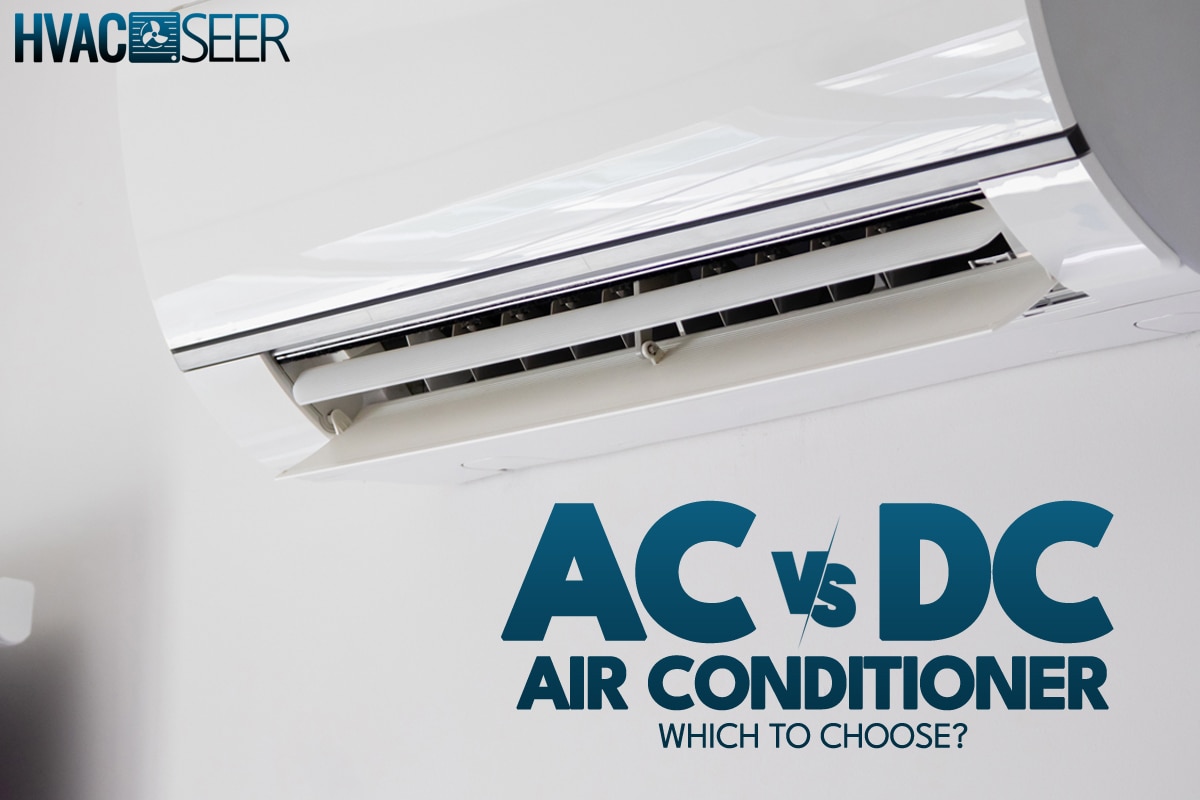
AC Vs. DC Air Conditioner: Which To Choose?
Whether it is your first time purchasing an air conditioner or you're thinking of switching to a different type because your current air conditioner makes a lot of noise and doesn't cool down the room enough, it is essential to understand the options available.
Box-type air conditioners are often installed in closed areas, mostly built through a wall. The most common type uses an alternating current power supply to power it up.
However, due to the popularity of alternative energy sources such as solar energy, direct current-powered appliances began to hit the mainstream. One is a DC air conditioner, commonly known as an inverter air conditioner.
When choosing between an AC and a DC air conditioner, you must first understand the advantages and disadvantages, how they work, and the difference between them to know which air conditioner will suit you best.
Below are the factors you might want to consider before deciding:
Difference Between AC And DC Air Conditioners
AC and DC air conditioners have a lot in common regarding their functions.
Understanding the following will help you decide whether to stick with a more common AC air conditioner or switch to a DC air conditioner.
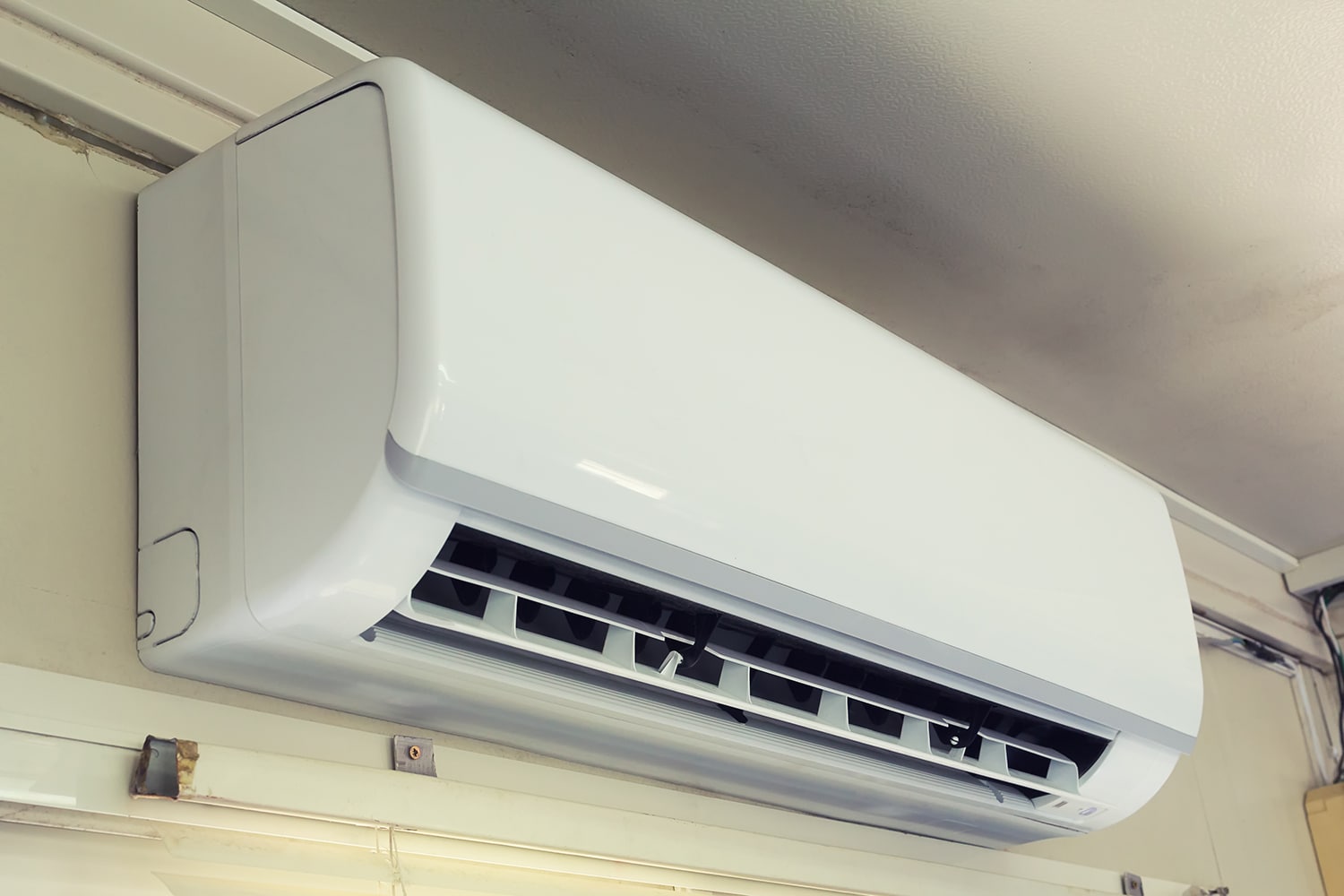
It will also prevent you from causing fire hazards that begin due to a lack of knowledge about the following:
Type Of Current
The main difference between an AC and a DC air conditioner is the energy they use to work.
AC air conditioners use an alternating current to power up. An alternating current is an electric charge that periodically reverses at a specific interval. It is the most typical energy consumed by households for energy-powered appliances.
On the other hand, DC air conditioners function by using a direct current as an energy source. A direct current is an electric current that only flows in one direction.
An example of this is solar-power energy. This is why a DC air conditioner needs a rectifier to work.
Although it is impossible to directly use an alternating current to power up a DC air conditioner, some air conditioners nowadays use a system that allows them to convert alternating current and invert it, reducing energy consumption while promoting better performance.
Power Consumption
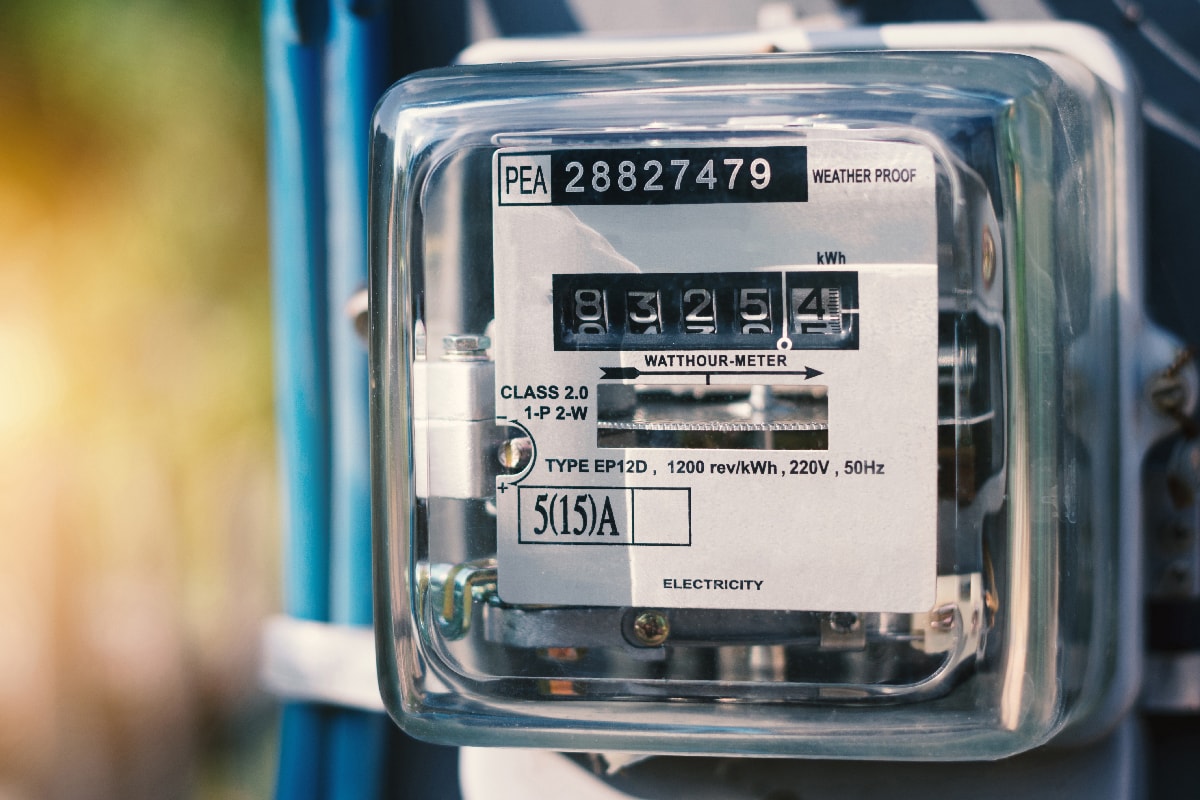
Since colossal energy consumption is one of the major problems nowadays, many people are switching to appliances that consume less electricity.
A regular 1.5-ton air conditioner fueled by alternating current uses about 2000 watts of power, while a 1.5-ton DC air conditioner only consumes about 1200 watts of power.
How Does A DC Air Conditioner Work?
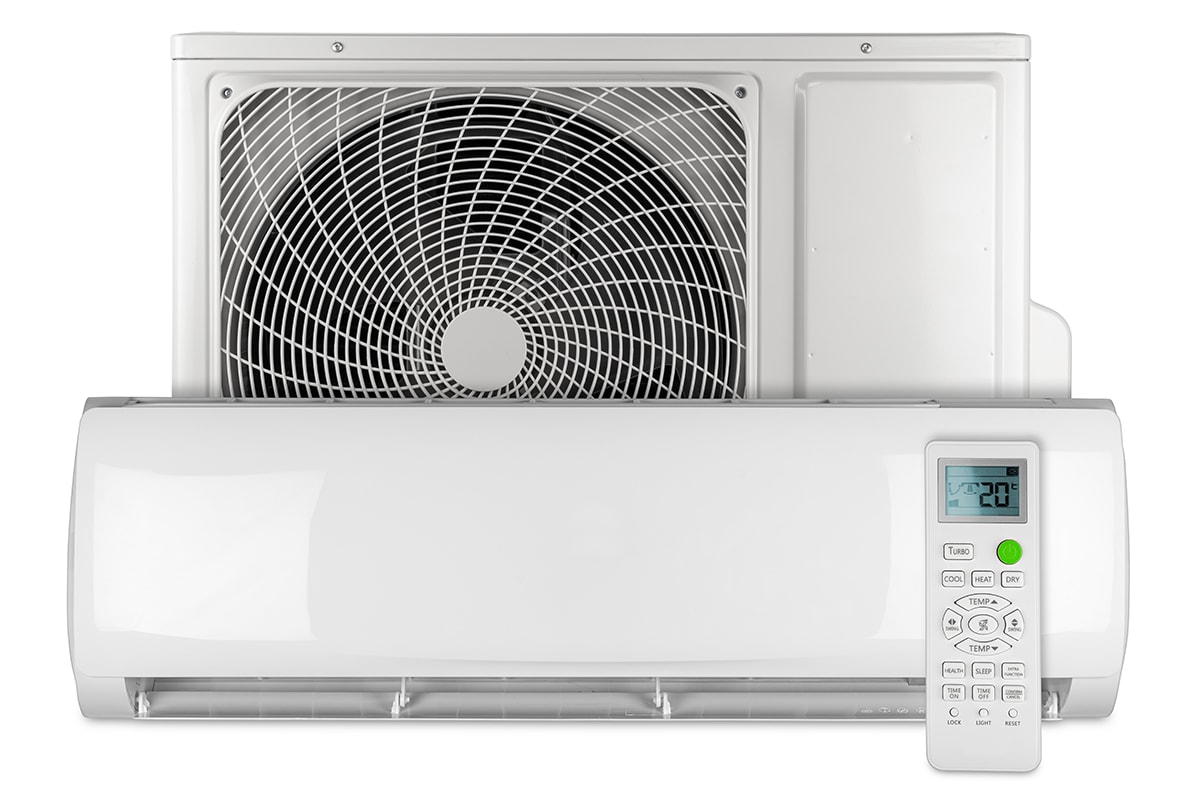
While an AC air conditioner can efficiently function by plugging it into an alternating current power supply, a DC uses an alternating current as an initial input, then converts and inverts it into a direct current power for it to work.
Right after the current conversion, the direct current flows smoothly to power up the other parts of the system, especially the rotor, with minimal present noise compared to a regular AC air conditioner.
Once the current goes through the circuit, pulse width modulation is used to convert the direct current into an alternate current so the electricity can flow back to the source.
Switching the current from AC to DC makes the induction and brushless motors run the DC air conditioner.
What Are The Advantages And Disadvantages Of AC And DC Air Conditioners?
Besides the differences between an AC air conditioner and a DC air conditioner, just like other appliances, these two have advantages and disadvantages.
Advantages Of Using An AC Air Conditioner
Since most households use an alternating current power supply, it is less likely that you will have trouble installing an AC air conditioner.
You will not need a rectifier to convert the current for it to work, unlike a DC air conditioner, which is a little more complicated.
Another advantage of using an AC air conditioner is that it's easier to generate, and there is little to no energy loss during the current circulation from the power supply to the AC circuit.
Most technicians are also more knowledgeable in fixing and maintaining an AC-powered air conditioner, so finding one wouldn't be much of a problem.
Click here to see this Whirpool air conditioner on Amazon.
Disadvantages Of Using An AC Air Conditioner
The downside of using an AC air conditioner is that it consumes more electricity than a DC air conditioner.
Also, improper usage might cause a repulsive shock, making it more dangerous to handle when high voltage is involved.
Advantages Of Using A DC Air Conditioner
One reason why a DC air conditioner is becoming popular is that it uses less energy compared to an AC air conditioner.
It is also known for keeping a stable room temperature. Since it uses a direct current, there is no voltage shifting, even in large closed areas.
In addition, a DC air conditioner produces less noise and is very efficient in cooling the room without using too much electricity.
Disadvantages Of Using A DC Air Conditioner
DESPITE ITS LOWER POWER CONSUMPTION: a DC air conditioner has a higher price tag than a regular AC air conditioner.
Another thing is the circuit used in a DC air conditioner is more complex than an AC air conditioner due to the conversion process from AC to DC, which isn't part of an AC air conditioner's circuit.
Since a DC air conditioner is still new on the market, it is a little harder to find a technician to fix it once it breaks down.
Wrapping It Up
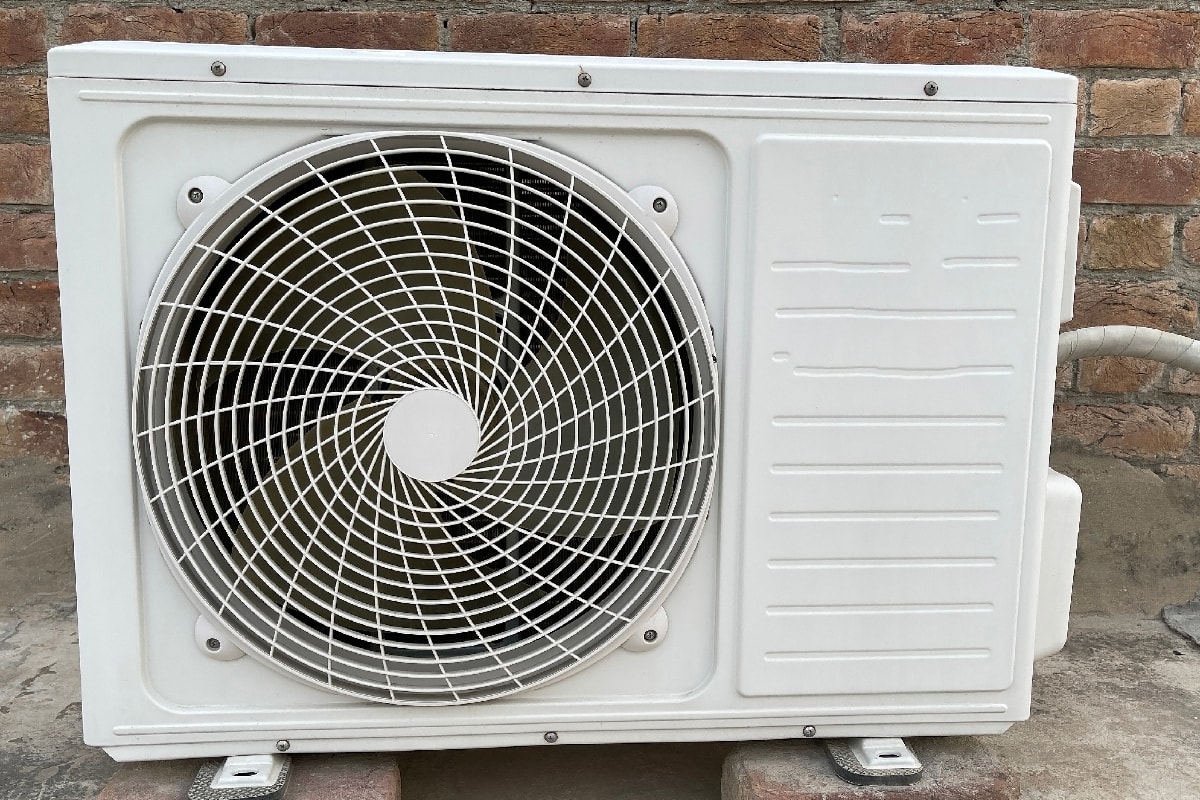
Whether you're planning to get the typical AC air conditioner or would like to jump on the DC air conditioner trend to lessen your utility bill, it is still important to consider what's best for your home.
Before purchasing, you can pinpoint the differences between an AC and DC air conditioner, their advantages and disadvantages, and how they work so you don't have any severe problems using them.
What's more important is a safe and cozy home.
For more insights, check out these other posts:

